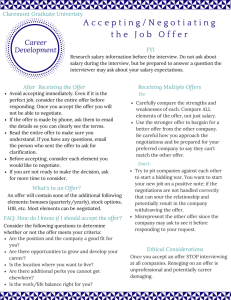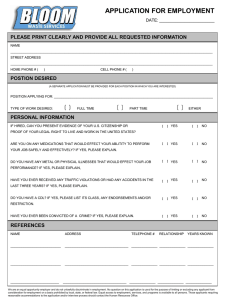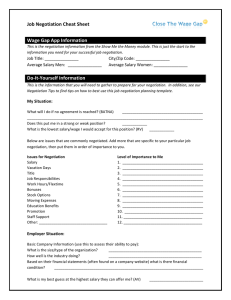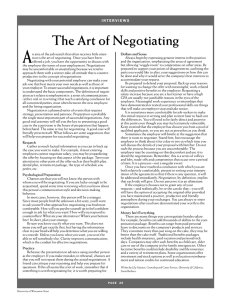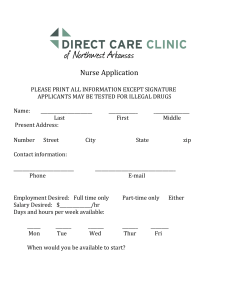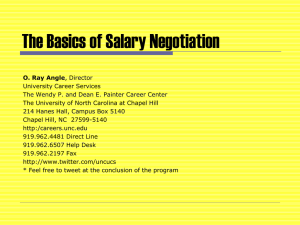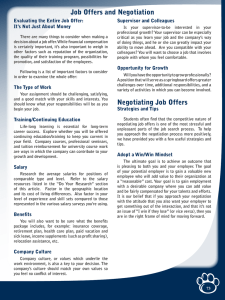Interviewing Strategies
advertisement
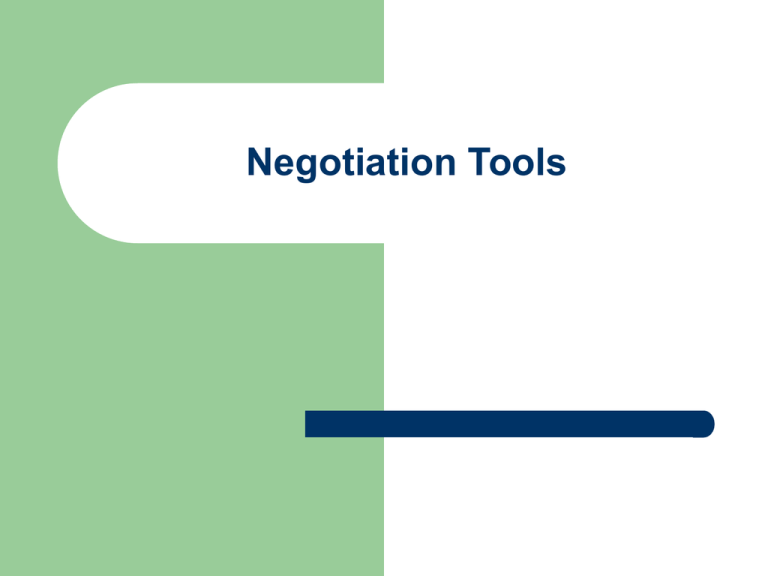
Negotiation Tools Good Negotiating is… A relationship-building tool An opportunity to assess fit with the employer A way to optimize the fit between the Offer and your “Ideal Position” A Win / Win Good Negotiators Are . . . Positive Realistic Problem Solvers Flexible Patient Confident Prepared The Power Curve Effective Negotiating Increases Employer's Interest and Your Power Screening 1st Interview 2nd 3rd (etc.) Offer When to Start a Negotiation Negotiation is not a continuous selling situation that occurs throughout the interview(s) You need to ensure that the employer is “sold on you” What to Negotiate What is most important to you regarding compensation? Base salary Number of weeks of vacation Immediate health coverage A signing bonus What else? Timing is Everything! Avoid premature income discussions - - they can be a real deal breaker Salary Ranges What if you give out your salary range too early and your range is … Too High? In their Range? Too Low? Handling Salary Questions It’s all about Attitude: “If they ask about my prior salary, I have to tell them.” versus “I’ll try to postpone that discussion. What I am paid should be competitive, and not based on prior salary.” A Six-Step Guide 1. Acknowledge the offer without negotiating (thank the employer and show your enthusiasm) 2. Analyze the offer and collect missing information (position responsibilities, results expected, benefits) 3. Evaluate the offer and determine your goals, trade-offs, and walk-away point 4. Negotiate and obtain or propose a counteroffer 5. Repeat steps 2, 3, and 4 as needed 6. Obtain agreement and ask for the final offer in writing (ask for time to evaluate and consider the offer) Negotiating Tips Reinforce your benefit to the employer Know your value through research Commit to Win / Win solutions Compromise when necessary Listen well Accept that the process can be stressful, but remain positive! Identify gaps and offer constructive solutions

